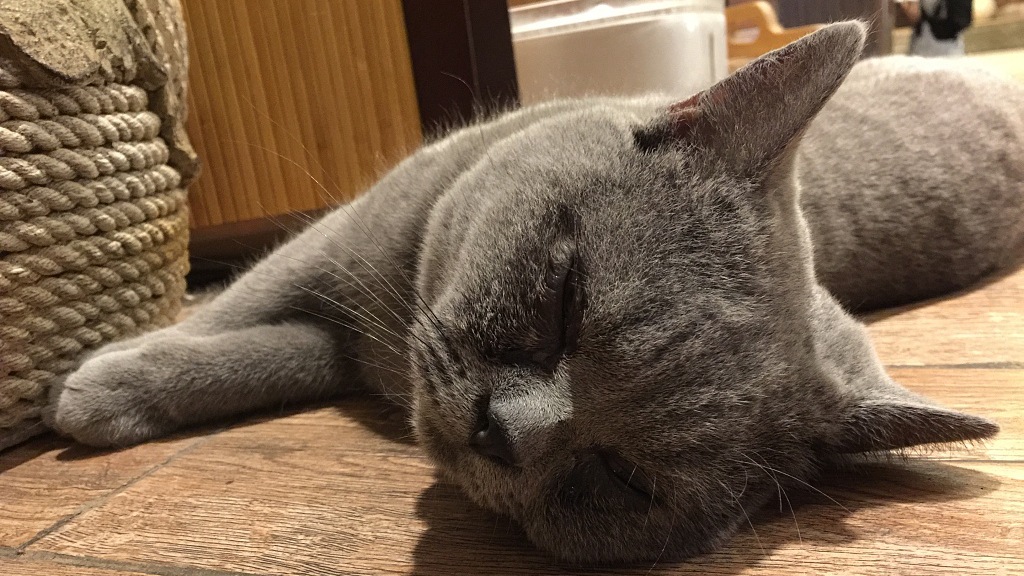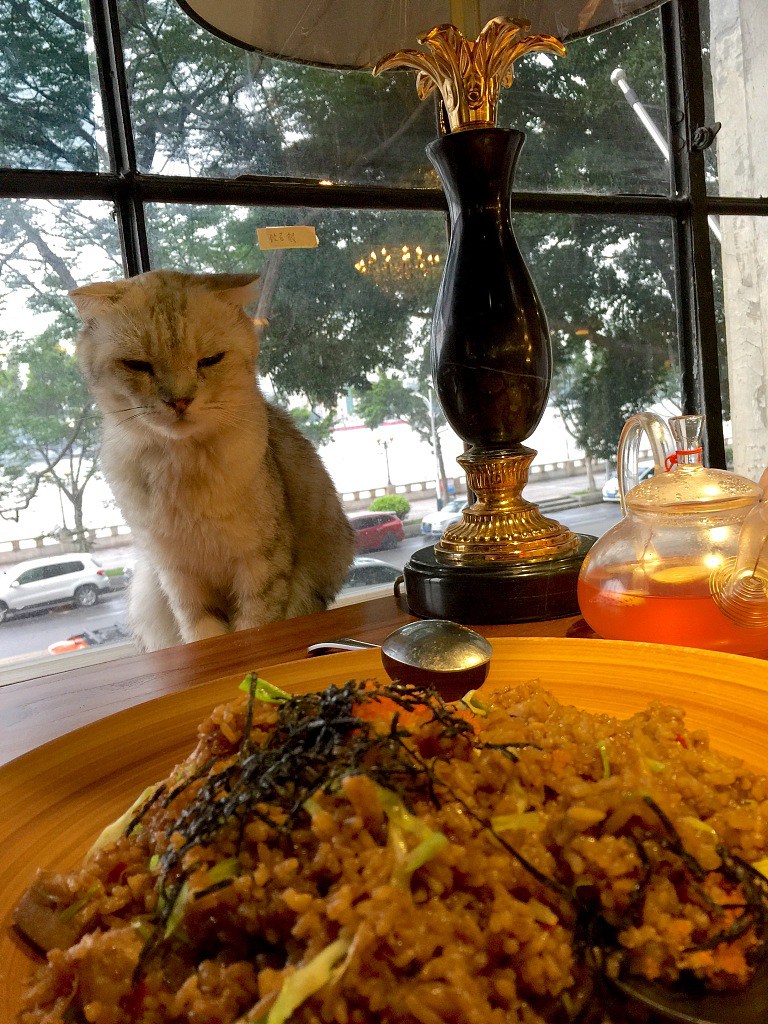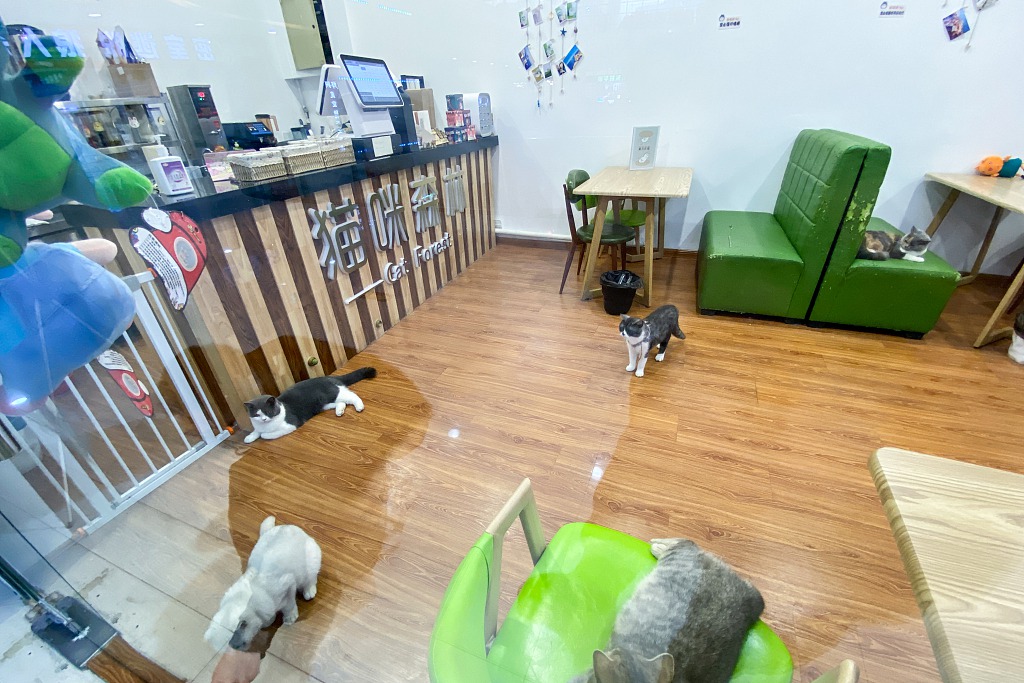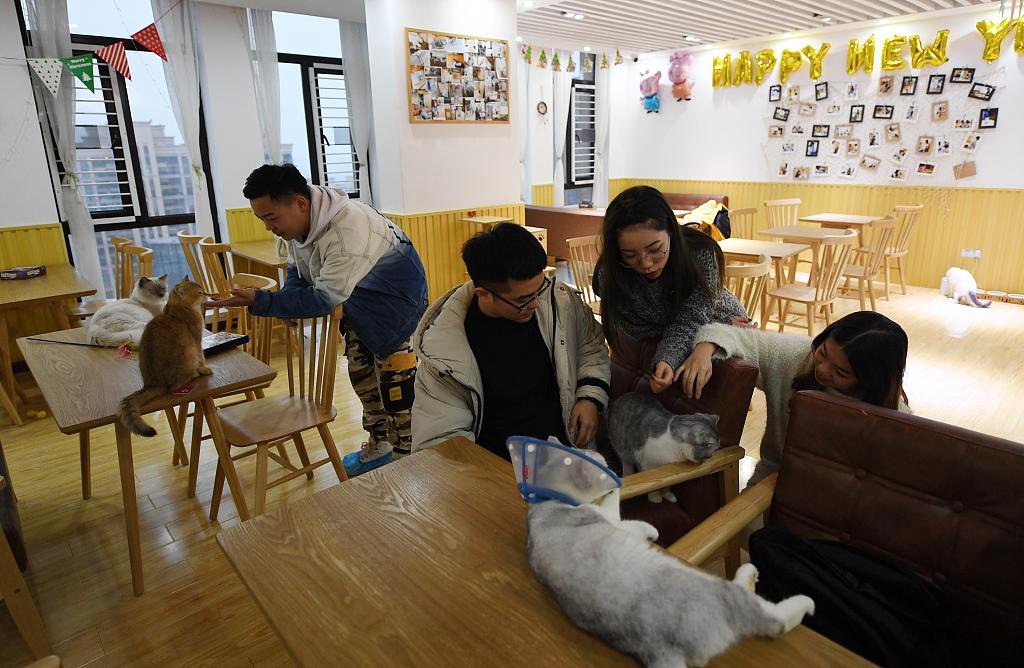
A cat is sleeping in a pet-themed restaurant in Guangzhou, Guagndong Province. /CFP
A cat is sleeping in a pet-themed restaurant in Guangzhou, Guagndong Province. /CFP
Animal lovers must be familiar with pet-themed restaurants, as they are now everywhere in Chinese cities and towns.
Most of such restaurants are known for their pets instead of foods, with cats, dogs, rabbits or other animals walking in the dining area, customers are usually allowed to caressing furry creatures or playing with them while eating or drinking.
With a large population of pet lovers in China today, it is not a surprise that such restaurants are trending, especially among the young people. However, few think about whether it is safe to enjoy their food in such an environment.

A cat is staring at the dish in a pet-themed restaurant in Guangzhou, Guagndong Province. /CFP
A cat is staring at the dish in a pet-themed restaurant in Guangzhou, Guagndong Province. /CFP
The procuratorate in Yuexiu District of Guangzhou city held a hearing last Friday, surrounding the business pattern of the pet-themed restaurants and their influences on the food security and public health.
It was an administrative public interest litigation. Participants invited to the hearing included administrative representatives, animal epidemic prevention specialists, law experts and local law makers.
According to the procurators, in most of the pet-themed restaurants, a number of cats or dogs are allowed to walk freely in the dining space. There is no clear boundary between the pets' living area and the dining area.
Meanwhile, animal hairs are floating in the air, and unpleasant smell fills the restaurants. In one of the shiba inu-themed restaurants, the dogs are occasionally fighting, jumping onto the dining table or even excreting in the dining area.

Cat-themed coffee shop are popular in Shanghai as well. /CFP
Cat-themed coffee shop are popular in Shanghai as well. /CFP
The consumers of those restaurants are largely young people in their 20s, as well as parents with their children. Without any public presentation of the vaccination certificates of those animals, customers were playing with them while dining.
The procurators argued that even though such restaurants have satisfied the consumers' needs to some extent, such business patterns have hidden troubles. For instance, the bacteria and parasites carried by the pets could be harmful to human beings as well. Besides, even though the animals are raised by the restaurants as pets, they could still attack the customers.
According to the law of food security in China, living animals and poultries are not allowed in the public area.
Two animal epidemic prevention specialists invited to the hearing talked about their concerns. The furred animals in the pet-themed restaurants, including felines, canines and leporids have high risks of carrying parasites or spreading diseases such as plague, and epidemic hemorrhagic fever due to their close contact with such a big flow of people.

Cats are walking freely in the dining area in a restaurant in Zhengzhou, Henan Province. /CFP
Cats are walking freely in the dining area in a restaurant in Zhengzhou, Henan Province. /CFP
With supervision and management measures missing in the newly-rising industry, it is hard to make sure that all restaurants and their managers have the basic knowledge of animal epidemic control, and most of the restaurants are not facilitated with sterilizing equipment to deal with the animal wastes.
The procuratorate suggested that local administrations should step up in their supervision of such restaurants.
The administrative public interest litigation are initiated by procurators when they believe the administrations violated the public interests or could cause potential harm to the public.
As pet-themed restaurants are growing in Chinese cities and towns, the supervision of such restaurants is remaining in blank in most areas.

Young people are enjoying caressing cats in a pet-themed store in Hangzhou, Zhejiang Province. /CFP
Young people are enjoying caressing cats in a pet-themed store in Hangzhou, Zhejiang Province. /CFP
As economy grows, more pets are entering more Chinese families, not as animals catering to the masters' needs, but as their family members or even spiritual supports.
According to a report released by a canine website, Goumin, the population of urban family owned dogs and cats is 99.2 million, up by seven percent from 2018. The scale of pet-related market is worth 202.4 billion yuan (US$30.3 billion), up 18.5 percent year on year.